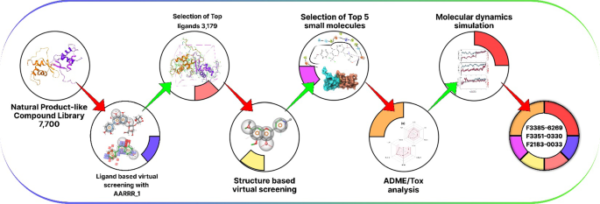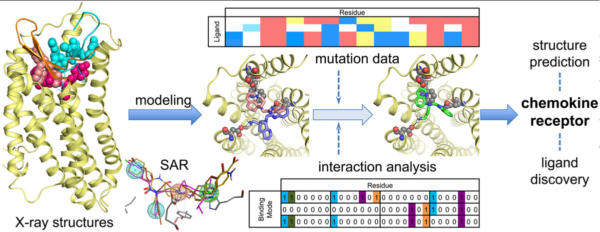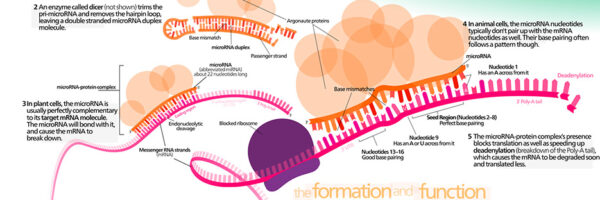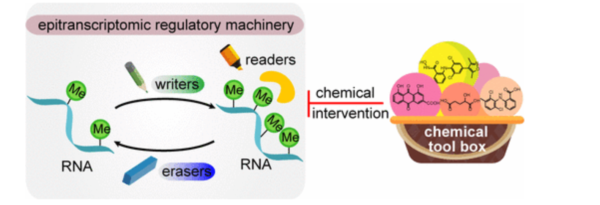Protein-protein interactions (PPIs) play crucial roles in various biological processes and have emerged as important therapeutic targets. The development and discovery of small molecules that can modulate PPIs are of great interest in drug discovery. The Nonpeptide Peptidomimetics PPI Library offers a unique approach to targeting PPIs using nonpeptide-based compounds. In this blog post, we will explore the significance of nonpeptide peptidomimetics in PPI modulation, delve into the contents of the library, and discuss its potential impact on drug discovery.
Understanding Nonpeptide Peptidomimetics
Nonpeptide peptidomimetics are synthetic compounds designed to mimic the structural and functional features of peptides while avoiding their limitations. These compounds possess similar shapes and chemical motifs as peptides but are distinct due to their non-peptide-based backbones. Nonpeptide peptidomimetics offer multiple advantages, including enhanced metabolic stability, improved pharmacokinetic properties, increased bioavailability, and oral administration potential. They can effectively target and interfere with PPIs by binding to specific protein interfaces, similar to natural peptides.
The Nonpeptide Peptidomimetics PPI Library
The Nonpeptide Peptidomimetics PPI Library is a curated collection of small molecules specifically designed to modulate PPIs using nonpeptide-based scaffolds. The library encompasses diverse chemical structures derived from rational design, combinatorial chemistry, and high-throughput screening campaigns. These compounds are optimized to mimic peptide-protein interactions, allowing for selective and potent modulation of PPIs. The Nonpeptide Peptidomimetics PPI Library provides researchers with a valuable resource to explore novel PPI targets and develop therapeutics with improved properties.
Applications in Drug Discovery
The Nonpeptide Peptidomimetics PPI Library holds immense potential in the field of drug discovery. Nonpeptide peptidomimetics offer the ability to tackle PPIs that were traditionally challenging to modulate with small molecules. By mimicking the essential interactions of peptides, these compounds can disrupt or stabilize PPIs involved in disease pathways. Furthermore, nonpeptide peptidomimetics can provide superior selectivity, longer half-life, and improved bioavailability compared to peptides, making them attractive candidates for therapeutic development. This library opens up opportunities for developing novel treatments for diseases such as cancer, inflammation, viral infections, and other disorders where PPI modulation is critical.
Advantages and Challenges
The Nonpeptide Peptidomimetics PPI Library offers several advantages over traditional peptide-based approaches. Nonpeptide peptidomimetics provide enhanced stability, metabolic resistance, and oral bioavailability, which are crucial for the development of therapeutic agents. These compounds can also exhibit improved cell membrane permeability and reduced immunogenicity compared to peptides. However, designing and optimizing nonpeptide peptidomimetics targeting specific PPIs require careful consideration of properties such as conformational constraints, stereochemistry, and physicochemical characteristics. Overcoming these challenges through iterative structure-based design and medicinal chemistry optimization is essential to harness the full potential of the library.
Future Perspectives
As our understanding of PPIs and peptidomimetic chemistry advances, the Nonpeptide Peptidomimetics PPI Library holds great promise for expanding the horizons of drug discovery. With continued advancements in computational methods, structure-based design, and chemical synthesis techniques, researchers can further refine and optimize nonpeptide peptidomimetics for PPI modulation. This library provides a robust platform for investigating new PPI targets and developing innovative therapeutics that can address critical unmet medical needs.




